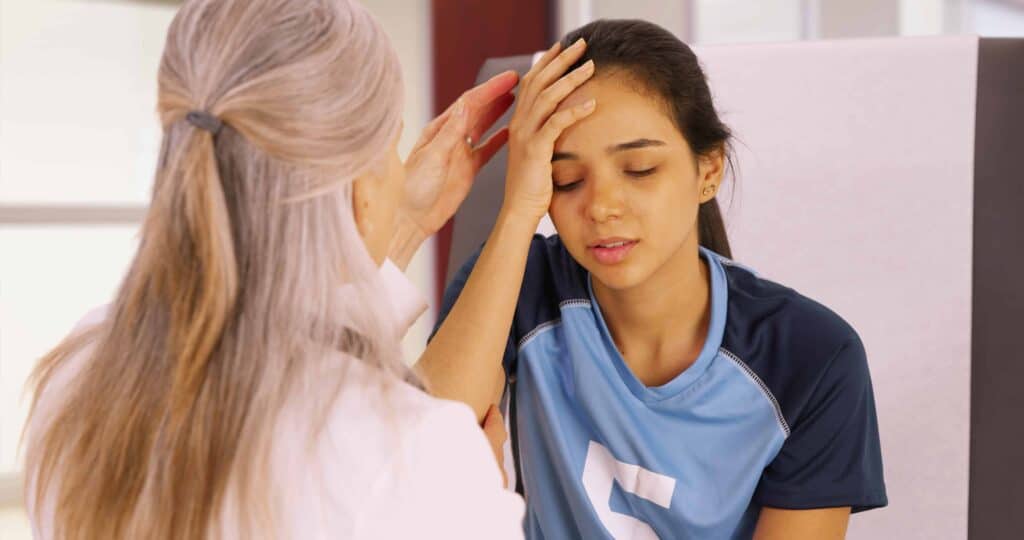Using machine learning to diagnose concussions
Diagnosing concussions in athletes and deciding on return-to-play strategies often relies on subjective measurements. The Concussion Index can help reduce subjectivity by using brain electrical activity and machine learning to diagnose concussions. Improved diagnosis reliability can help reduce concussion-related disabilities in athletes.
How coaches can support concussed athletes
Many coaches are familiar with the risk of concussions in sport, but may be unaware of how to best support an athlete through a concussion. Research shows that coaches can support concussed athletes by understanding their organization’s or school’s concussion protocol, and by actively working with healthcare professionals to support athletes’ concussion recovery.
Psychosocial readiness to return to sport following a sport-related concussion

Did you know that 1 in 450 Canadians suffered a sport-related concussion (SRC) or other type of brain injury in the past year (Gordon & Kuhle, 2022)? A SRC is a traumatic brain injury caused by a direct or indirect blow to the head (McCrory et al., 2017). For example, being struck by a soccer…
Biomarkers for concussion diagnosis
Concussion diagnosis largely relies on subjective experiences. But new research is being conducted to measure physiological effects of concussion through biomarkers in athletes’ saliva. This approach could change the way concussions are diagnosed and help monitor athletes’ brain health post-concussion.
Concussion in soccer
Neurogenerative disease is more common in former professional soccer players than in the general population. However, disease risk varies by player position and career length, and this pattern has remained consistent for decades. These findings can help inform strategies to reduce head impact exposure for athletes. Follow SIRC on social media as we share stories…
Making contact sports safer
Concussion is a serious concern in contact sports. A New Zealand research team of clinicians, sport scientists, and engineers is exploring the potential of soft-shell headgear and coaching programs that could make sports like rugby safer for all players, and especially youth.
Acquired Cognitive-Communication Disorders and Post-Concussion Syndrome in sport: What you should know

Sport-Related Concussion has become recognized as a major health problem that affects millions of people around the world annually (Wang et al., 2016). In Canada, sport and recreational activities account for a large proportion of concussions, particularly amongst children, adolescents and young adults (Government of Canada 2018). Most concussed individuals recover within 4 weeks. Typical…
Pickleball problems
For racquet sports like pickleball, concussion awareness may not always be a top concern. But after one player’s fall, all it took was a trip to the emergency room and a previously undetected tumour for Pickleball Hamilton to realize how important concussion protocols are—in any sport. Read the story that shifted Pickleball Hamilton’s perspective, and…
Peer-led education
Peer-led education programs, such as You-CAN, can help high-school students better understand and deal with a concussion. Because youth are strongly influenced by their social networks, peer education can shape students’ knowledge (what they know about concussion), attitudes (what they think about concussion), and intended behaviours (how they would act if they experienced a concussion…
Treating sport-related concussion with exercise
For decades, rest has been prescribed for sport-related concussion symptoms. But new evidence suggests that mild to moderate aerobic exercise can be a safe and effective concussion treatment. In fact, exercise can help speed up recovery and help athletes who experience symptoms beyond the expected recovery period.